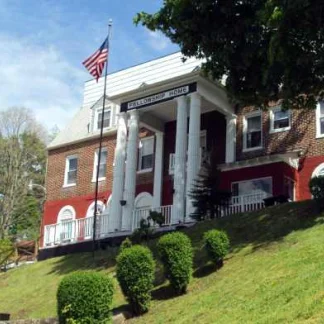Princeton Community Hospital - Behavioral Health
Princeton Community Hospital – Behavioral Health is a private rehab located in B...
Mercer County Fellowship Home offers a transitional living for adult men who are in recovery from alcohol and substance abuse. They assist residents using education, counseling and sober lifestyle. Mercer County Fellowship Home is located at Bluefield, West Virginia.
Mercer County Fellowship Home philosophy is based on helping to change lives one day at a time. Their main purpose is to provide housing and recovery services to adult males who are recovery from alcohol and substance abuse issues. They also help their residents using education and lifestyle changes.
During their stay, residents must attend scheduled AA meetings at the Home on Tuesday and Fridays. The first Friday of every month is intergroup meeting and weekend passes will not be approved until after the meeting.
Residents will also have access to licensed counselors or referrals to counseling.
Contact us for more information: (304) 327-9876

Connect with Mercer County Fellowship Home by calling their admissions team directly.
(304) 327-9876 Website Get DirectionsThe Substance Abuse and Mental Health Services Administration (SAMHSA) is a branch of the U.S. Department of Health and Human Services. Established in 1992 by congress, SAMHSA's mission is to reduce the impact of substance abuse and mental illness on American's communities.
SAMHSA Listed: Yes
Group therapy is any therapeutic work that happens in a group (not one-on-one). There are a number of different group therapy modalities, including support groups, experiential therapy, psycho-education, and more. Group therapy involves treatment as well as processing interaction between group members.
In individual therapy, a patient meets one-on-one with a trained psychologist or counselor. Therapy is a pivotal part of effective substance abuse treatment, as it often covers root causes of addiction, including challenges faced by the patient in their social, family, and work/school life.
Life skills trainings involve all the skills a person must have in order to function successfully in the world. These include time management, career guidance, money management, and effective communication. Truly successful addiction recovery is based on the ability to not only live substance-free, but to thrive. Life skills teaches the practical necessities of functioning in society, which sets clients up for success in life, and therefore sobriety.
In individual therapy, a patient meets one-on-one with a trained psychologist or counselor. Therapy is a pivotal part of effective substance abuse treatment, as it often covers root causes of addiction, including challenges faced by the patient in their social, family, and work/school life.
Life skills trainings involve all the skills a person must have in order to function successfully in the world. These include time management, career guidance, money management, and effective communication. Truly successful addiction recovery is based on the ability to not only live substance-free, but to thrive. Life skills teaches the practical necessities of functioning in society, which sets clients up for success in life, and therefore sobriety.
Life skills trainings involve all the skills a person must have in order to function successfully in the world. These include time management, career guidance, money management, and effective communication. Truly successful addiction recovery is based on the ability to not only live substance-free, but to thrive. Life skills teaches the practical necessities of functioning in society, which sets clients up for success in life, and therefore sobriety.
Princeton Community Hospital – Behavioral Health is a private rehab located in B...